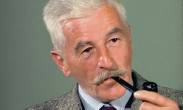| Current Top 10 New York Times® Fiction Bestsellers: Print & E-Books Combined | |
|
1. Whiskey Beach ~ Nora Roberts 2. Damaged ~ H. M. Ward (kindle ed.) 3. Taking Eve (Eve Duncan) ~ Iris Johansen 4. The Bet ~ Rachel Van Dyken 5. Real ~ Katy Evans |
6. Beautiful Stranger ~ Christina Lauren 7. Six Years ~ Harlan Coben 8. Gone Girl: A Novel ~ Gillian Flynn 9. Daddy's Gone A Hunting ~ Mary Higgins Clark 10. The Wanderer (Thunder Point) ~ Robyn Carr |
|
All New York Times Bestsellers >> |
|
Selected Novels and Writings of William Faulkner
The Sound and the Fury Paperback by William Faulkner
|
Collected Stories Paperback by William Faulkner
|
Light in August Paperback by William Faulkner
|
A Summer of Faulkner: 3 Novels Paperback by William Faulkner
|
As I Lay Dying Paperback by William Faulkner
|
Sanctuary Paperback by William Faulkner
|
Absalom, Absalom! Paperback by William Faulkner
|
Snopes: The Hamlet, The Town... Hardcover by William Faulkner
|
Go Down, Moses Paperback by William Faulkner
|
The Reivers Paperback by William Faulkner
|
The Unvanquished Paperback by William Faulkner
|
The Portable Faulkner Paperback by William Faulkner
|
Every Day by the Sun: A Memoir Hardcover by Dean Faulkner Wells
|
William Faulkner: Lives and Legacies Hardcover by Carolyn Porter
|
All William Faulkner Writings @ amazon.com >>![]() Kindle Editions >>
Kindle Editions >>![]()
William Faulkner Bio
 Born in 1897 in New Albany, Mississippi, William Faulkner was the son of a family proud of their prominent role in the history of the south. He grew up in Oxford, Mississippi, and left high school at fifteen to work in his grandfather's bank.
Born in 1897 in New Albany, Mississippi, William Faulkner was the son of a family proud of their prominent role in the history of the south. He grew up in Oxford, Mississippi, and left high school at fifteen to work in his grandfather's bank.
Rejected by the US military in 1915, he joined the Canadian flyers with the RAF, but was still in training when the war ended. Returning home, he studied at the University of Mississippi and visited Europe briefly in 1925.
His first poem was published in The New Republic in 1919. His first book of verse and early novels followed, but his major work began with the publication of The Sound and the Fury in 1929. As I Lay Dying (1930), Sanctuary (1931), Light in August (1932), Absalom, Absalom! (1936) and The Wild Palms (1939) are the key works of his great creative period leading up to Intruder in the Dust (1948). During the 1930s, he worked in Hollywood on film scripts, notably The Blue Lamp, co-written with Raymond Chandler.
William Faulkner was awarded the Nobel Prize for Literature in 1949 and the Pulitzer Prize for The Reivers just before his death in July 1962.¹ read more
William Faulkner Quotes
"Never be afraid to raise your voice for honesty and truth and compassion against injustice and lying and greed. If people all over the world...would do this, it would change the earth."
"Read, read, read. Read everything - trash, classics, good and bad, and see how they do it. Just like a carpenter who works as an apprentice and studies the master."
"A writer needs three things, experience, observation, and imagination, any two of which, at times any one of which, can supply the lack of the others."
William Faulkner Sites
- CSU Library: William Faulkner
- Faulkner's Home: Rowan Oak video
- William Faulkner and the Southern Writers
- Guide to Faulkner on the Web
- Faulkner: Nobel Prize Winner, 1949
- ¹ William Faulkner at Wikipedia
© Copyright 2004- by Ace Toscano. All rights reserved.
